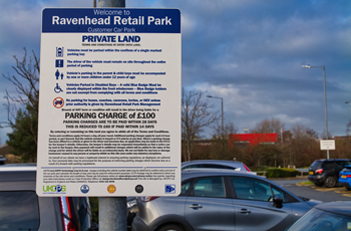The BPA (British Parking Association) and the IPC (International Parking Community) have published a Private Parking Sector Single Code of Practice ‘to be used across the entire private parking sector’, ahead of a delayed official government version.
The industry bodies said the new code will raise standards and deliver greater transparency and consistency for the benefit of motorists, however it has already raised controversy with motoring organisations, which said it was a ‘watered-down’ version of what was expected.
Among other measures, the new code introduces an Appeals Charter, mandates a 10-minute grace period, requires clear signage, and maintains a cap on the parking charge at £100.
 The RAC’s head of policy, Simon Williams, acknowledged that some of the measures are an improvement on the status quo, but said: ‘Drivers shouldn’t be fooled into thinking this so-called code developed by the private parking industry itself is the same as the long-delayed official Private Parking Code of Practice that is backed by legislation.
The RAC’s head of policy, Simon Williams, acknowledged that some of the measures are an improvement on the status quo, but said: ‘Drivers shouldn’t be fooled into thinking this so-called code developed by the private parking industry itself is the same as the long-delayed official Private Parking Code of Practice that is backed by legislation.
‘This, and only this, will bring an end to the worst practices of some private parking operators and mean drivers, and especially those who are vulnerable, are protected from unreasonable fines and debt collectors chasing down payments.
‘We sincerely hope the official government code will finally come into force later this year, five years after it became law.’
The AA’s head of roads policy, Jack Cousens, said: ‘It’s somewhat ironic that after pushing so hard against adopting one, the two bodies have decided to implement their own. This watered-down “code of practice” falls far short of the standards The AA, government and consumer groups have called for across many years.
‘This self-authored “code” doesn’t acknowledge the need to cap charges and remove debt recovery fees. These elements are desperately needed from a government-backed Code to protect innocent drivers from the sharks running private car parks.’




